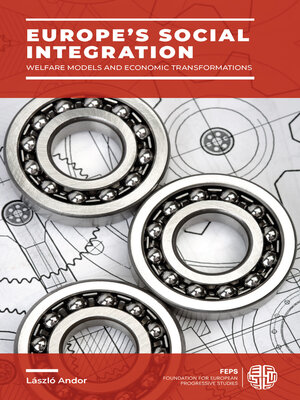
Sign up to save your library
With an OverDrive account, you can save your favorite libraries for at-a-glance information about availability. Find out more about OverDrive accounts.
Find this title in Libby, the library reading app by OverDrive.



Search for a digital library with this title
Title found at these libraries:
| Library Name | Distance |
|---|---|
| Loading... |
Published in association with the Foundation for European Progressive Studies (FEPS), this book examines the four factors that challenge the fate of the European social model: globalization, monetary union, Eastern enlargement and digitalization. As a former EU Commissioner for Social Affairs, the author represents the rare combination of a top policy maker and a profoundly knowledgeable political economist. Andor's book offers both first-rate analysis and imaginative ideas for the reforms needed to cope with these four factors. He leads us through the "ups" of post World War II policy design in the West and the vision of a post-communist regime in the Centre-East before going on to examine the EU-wide "downs" due to cultural neo-conservatism and the trajectory of EU macro governance. Having taken stock of some of the main threats to the social model, he goes on to highlight where common EU policy can be part of the solution, rather than part of the problem – which was too often the case in the past.|Published in association with the Foundation for European Progressive Studies (FEPS), this book examines the four factors that challenge the fate of the European social model: globalization, monetary union, Eastern enlargement and digitalization. As a former EU Commissioner for Social Affairs, the author represents the rare combination of a top policy maker and a profoundly knowledgeable political economist. Andor's book offers both first-rate analysis and imaginative ideas for the reforms needed to cope with these four factors. He leads us through the "ups" of post World War II policy design in the West and the vision of a post-communist regime in the Centre-East before going on to examine the EU-wide "downs" due to cultural neo-conservatism and the trajectory of EU macro governance. Having taken stock of some of the main threats to the social model, he goes on to highlight where common EU policy can be part of the solution, rather than part of the problem – which was too often the case in the past.







